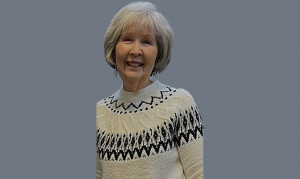Some 15 years ago, Robert Fulghum wrote a book entitled “All I Really Need to Know I Learned in Kindergarten.” His work struck a chord with readers and it has been a best seller for many years. After 13 years of college and graduate education and another 20-something in my profession, I’ve learned that life can be complicated, but as Fulghum observed, much of what matters in life is not complicated at all.
When we were children, life seemed so simple, but somewhere along the way our lives became messy and complex. I’ve often joked that if I could get the adults out of the lives of the children I work with, then their lives would be much better. I don’t really mean that, of course, but the truth is that we often make life more complicated than necessary for ourselves and those around us.
My supervisees and interns want to learn the intricacies of the profession. How do I avoid burnout? How do I get children to talk to me? How can I be certain of the ethical thing to do? The answers to these questions and others can sometimes be very complicated, but in reality a lot of what I do professionally and in everyday life comes down to simple rules. Here are a few that guide me.
Be respectful. I do my best to talk to everyone respectfully, even if they don’t deserve it. My goal is to talk respectfully to my college students, children, my spouse, workmates, clients, and people on the street. Tact and respect separate us from the animals.
Oddly, children as young as 2 years of age open up to me quite readily in part because I simply get down on one knee and look them in the eye. I listen to their stories respectfully just as I would listen if an adult were talking to me. Being heard is a powerful connector.
I don’t have to be perfect. My father tried to teach me this lesson as a boy, but it took me years to fully understand what he meant. Living with mistakes is part of life. People who love you will look past your mistakes and see that you are more than your errors and frailties. People who don’t aren’t your friends.
Avoid saying anything about someone that you wouldn’t say to their face. Talking down about others is a middle school technique for feeling better about ourselves. Even if the person we are talking about never hears what is being said behind his or her back, trash-talking another human being perpetuates arrogance in ourselves. Nobody needs that.
Work hard at doing things for others and you will increase your chances of happiness. As we all started learning in childhood at Christmas time, it is what we give rather than what we receive that really brings happiness to the holidays. One part of a treatment plan for depression is to invest in something outside yourself. Volunteer at a homeless shelter. Read to grade school children or the elderly. Life is not just about you.
Learn to forgive. In 1994 when I started working on my Survivors book, I searched every scholarly database I could find and only came up with one academic article (other than theological ones) on the benefits of forgiveness. By the time I finished that book, there were hundreds of titles focusing on this topic. Somewhere in the 10 years in between, clinicians had discovered what our mothers taught us in childhood. Forgiveness isn’t just about what it does for others. It is good for us, too. Holding on to resentments, grudges, and hatred are caustic to the soul.
Be grateful for what you have. Money really doesn’t buy happiness. Research on this subject is quite clear. Once people have enough money to subsist, there is absolutely zero correlation between money and happiness. We can be easily lured by the myth that “just a few more dollars” would make our lives easier, but it rarely works that way. As we get a few more dollars, we improve our lifestyles and then find ourselves needing a few more dollars again.
Being satisfied with what we have – our families, our health, our homes, and our possessions – is one of the biggest keys to happiness. The grass is never greener on the other side of the fence. It is just different grass. If you are happy with what you have, you will always be happy.
These rules aren’t a panacea for life’s troubles, but as most of our parents taught us in childhood, our lives can be simpler and easier.
[Gregory K. Moffatt, Ph.D., is a college professor, published author, licensed counselor, certified professional counselor supervisor, newspaper columnist and public speaker. He holds an M.A. in Counseling and a Ph.D. in Psychology from Georgia State University and has taught at the college level for over 30 years. His website is gregmoffatt.com.]












Leave a Comment
You must be logged in to post a comment.